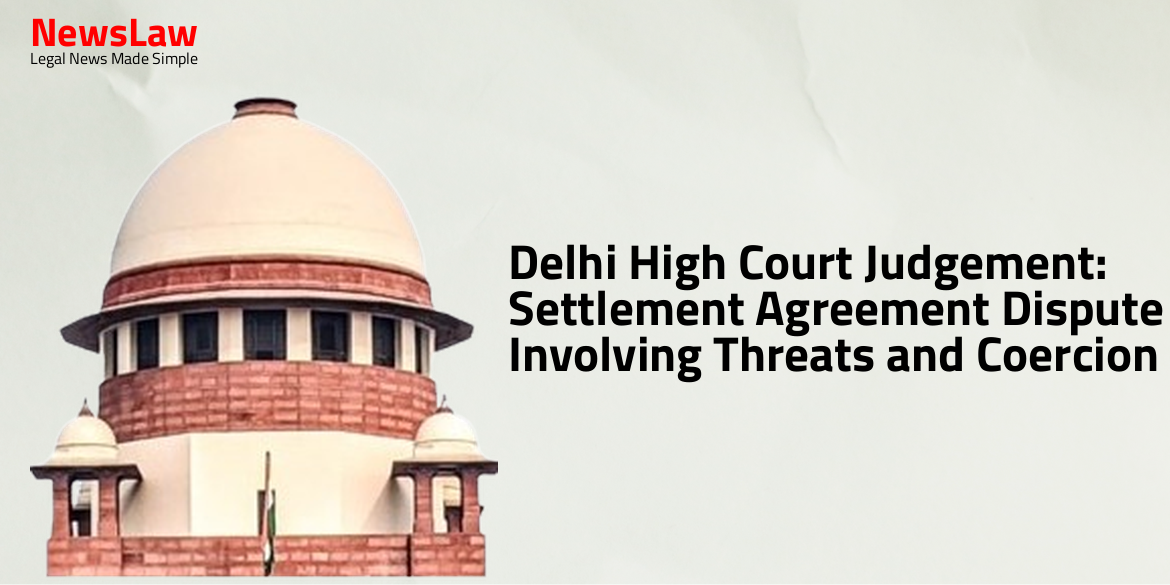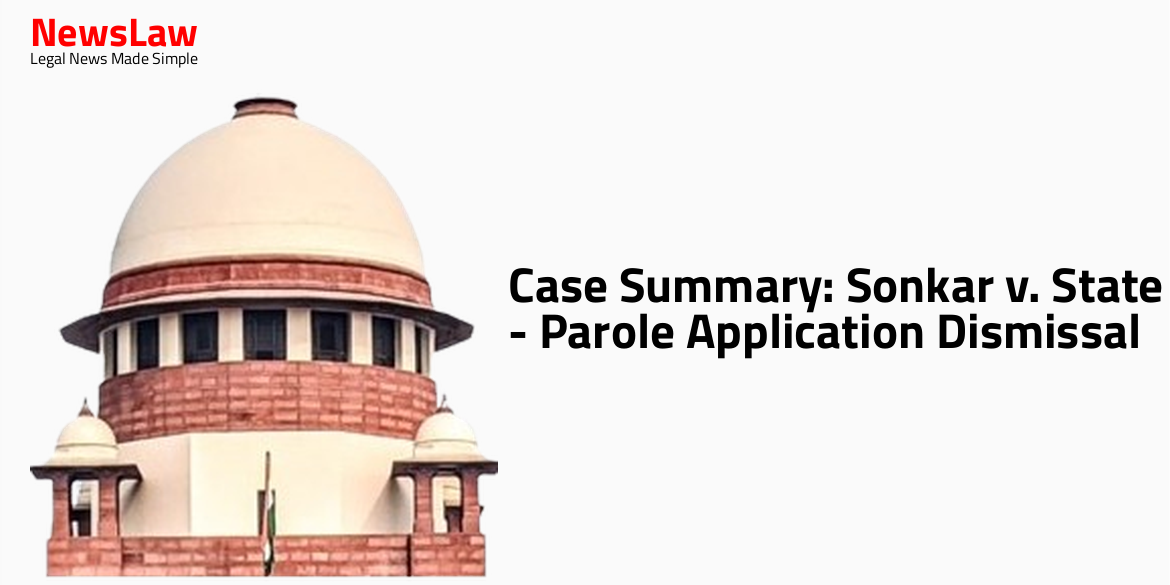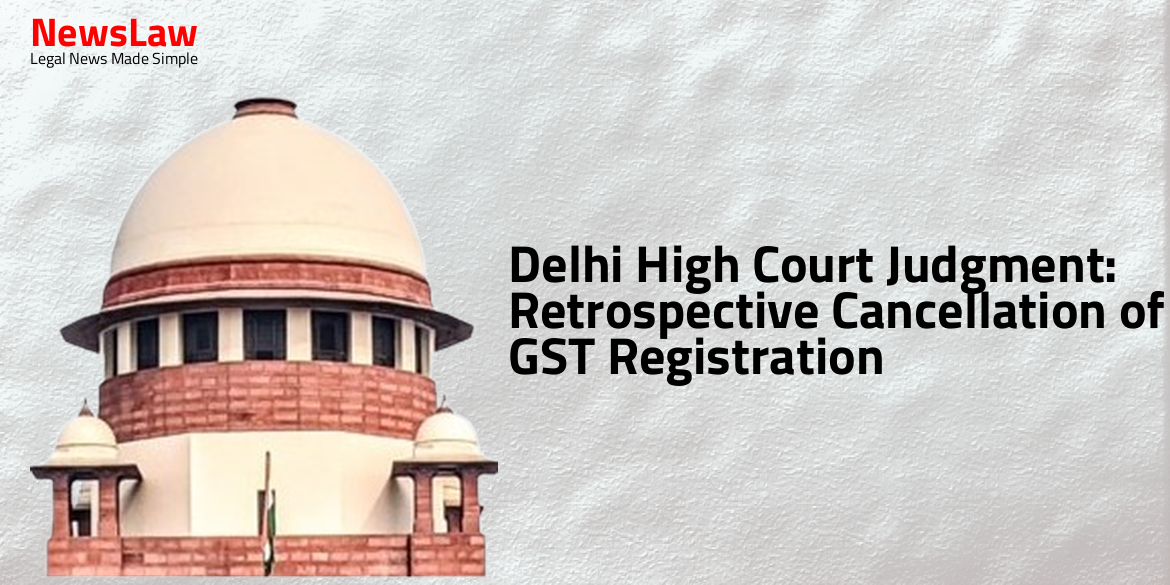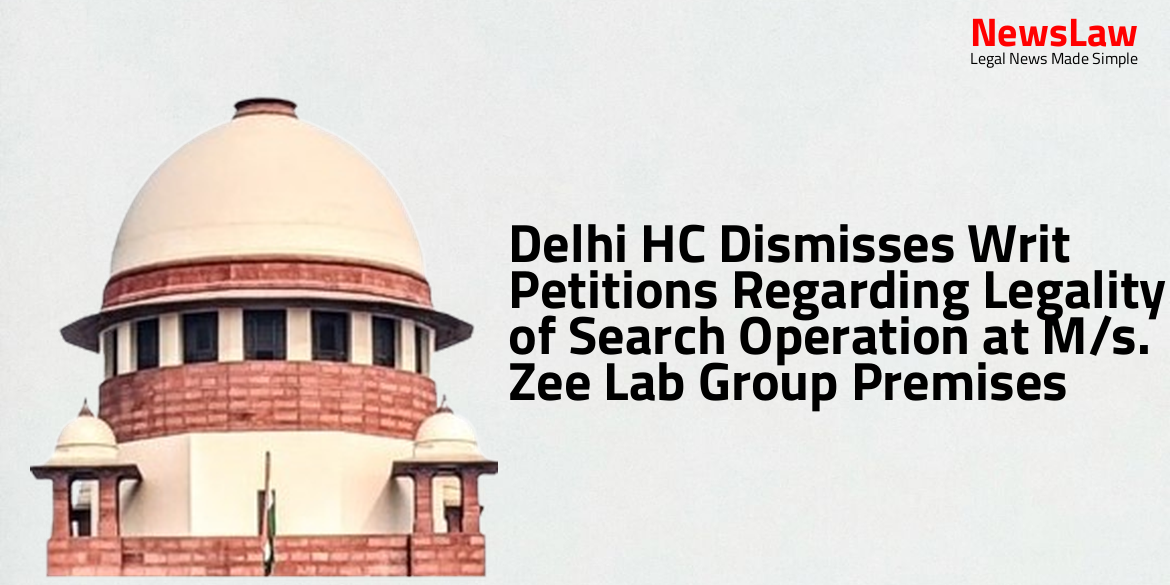In a recent judgement by the Delhi High Court, a case involving a dispute over a Settlement Agreement has been resolved. The matter, which included threats and coercion against the respondent, has been carefully examined. This case sheds light on the importance of upholding legal agreements and protecting individuals from unlawful practices. Let’s delve deeper into the details of this significant ruling.
Facts
- Petitioner threatened to kill the respondent and his family if he didn’t sign papers related to a car.
- Petitioner claimed to have criminal cases against the respondent and warned him to forget about the car.
- Respondent requested the car back as he had taken a loan for it, but petitioner threatened to use it for illegal activities.
- Petitioner coerced respondent into a Settlement Agreement to transfer the vehicle and pay the loan, which petitioner did not fulfill.
- Respondent complained to authorities, but petitioner avoided returning the vehicle.
- The court rejected petitioner’s plea for anticipatory bail due to involvement in multiple criminal cases.
- Petitioner’s claim of purchasing the vehicle for the respondent does not hold due to the Benami Transaction Act.
- Court found the Settlement Agreement plea unconvincing as respondent disclosed the settlement and petitioner failed to comply.
- Vehicle has been recovered from the petitioner.
Analysis
- The settlement does not support the petitioner’s claim of purchasing the vehicle in the name of the respondent
- The terms of the settlement do not align with the current case being presented by the petitioner
- Investigation is required to determine the compliance or non-compliance of the settlement and its implications
- The power of quashing should be exercised sparingly and with circumspection.
- Quashing of FIR should be considered in the rarest of rare cases.
- Courts should not question the reliability or genuineness of allegations in the FIR during quashing proceedings.
- Criminal proceedings should not be halted at the initial stage.
- Quashing of a complaint or FIR should be an exception rather than a common practice.
Case Title: ROHIT JAIN Vs. GOVT. OF NCT OF DELHI. & ANR. (2024:DHC:4327)
Case Number: CRL.M.C.-4334/2024



